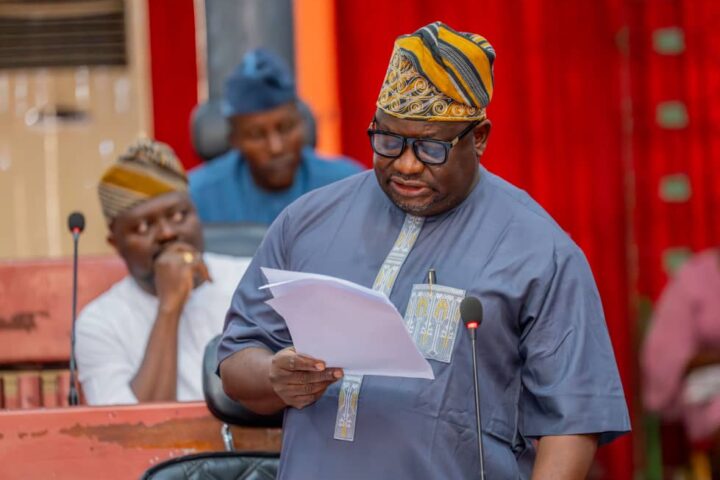To boost Nigeria’s soverign risk profile,the Lagos Chamber of Commerce and Industry,has advised the federal governance to consider reducing revenue leakages in the country.
Specifically,the chamber implored the government to sustain ongoing conversations and efforts to curb oil theft, remove subsidies, reduce waivers, and unify multiple exchange rates to reduce revenue leakages.
Three leading global default risk rating agencies had recently downgraded Nigeria’s Sovereign Risk profile
Fitch downgraded Nigeria’s long-term foreign currency debt Issuer Default Rating (IDR) from ‘B’ to ‘B-, few notches above a junk status, following Moody’s lead in downgrading Nigeria’s risk outlook, and Standard and Poor’s placement of Nigeria’s Eurobonds on its watchlist.
The rating agencies all pinned Nigeria’s deteriorating risk profile down to weakening external and government finances, especially the facts that declining government revenues are now falling short of rising interest payments on government debt, inadequate availability of foreign exchange, and heightened exchange rate uncertainty, all in the face of strong global oil prices.
But a statement by the Director-General of LCCI,Dr.Chinyere Almona,said government should complement ongoing efforts to generate more tax revenue through annual Finance Acts with parallel efforts to generate nontax revenue from fees, rent, and other income from government assets through annual Investment Acts.
She added:”Countries like UAE and Saudi Arabia rely more on fees than taxes and seem to be better off when compared with countries that rely more on taxes than fees like Nigeria. Nigeria’s issuance of two more 5G technology and telecoms operations licenses by the NCC and the oil licenses granted by NNPC for oil blocks positive steps in this direction that we encourage to replicate across all infrastructure sectors”
She advised that Nigeria needs to increase the quality of its debt issues to bring down the issue rates on new debt issues.
The main problem with Nigeria’s debt is not the size but the cost,he said.
She also said:”Malaysia’s debt stock of US$225 billion is more than twice Nigeria’s debt of US$100 billion but the average interest rate on Malaysia’s debt is less than half of the average of 12 percent that Nigeria spends on lower debt stock. Saudi Arabia also owes more than US$260 billion but enjoys average interest rate that is also less than half of Nigeria’s.
“The difference between Nigeria and these countries is that they issue higher quality debt that attracts investment grade ratings from the same global risk rating agencies that are currently downgrading Nigeria’s risk profile towards a junk issuer status. Nigeria does not have any investment grade debt in its portfolio, which are mostly promissory notes or mere IOUs against declining revenues. These are known to attract the highest known issue rates at home and abroad.
“The fact that a Nigerian company recently issued a bond-rated investment grade by Fitch is evidence that the Nigerian government can also make efforts to issue investment grade bonds. Investment grade bonds must however be asset-based rather than revenue-based, as the recent issue cited above shows. Nigeria has far more choice assets it can issue bonds against than the company in question.
Nigeria,she said,should increase foreign exchange inflows through Foreign Direct Investment
According to her,the enduring solution to the inadequate availability of foreign exchange and heightened exchange rate uncertainty is to issue more cross-border equity.
“Nigeria’s strongest fiscal and financial point today is that it has not issued any equity at home and abroad in a long time, preferring to issue on debt in terms of treasury bills, federal government bonds, and Eurobonds.
“With a lengthy list of prized corporate, real estate, and infrastructure assets in its kitty, the world will only be too glad to invest surplus global liquidity in Nigeria’s assets, if Nigeria chooses to offer the opportunity, like China, India, Brazil, Saudi Arabia, Malaysia, and Egypt are gainfully doing. The choice is ours”,she said.
She emphasized equity financing of the 2023 Federal Budget
She said the President has proposed that more borrowings will fund N10.5 trillion out of these deficits,adding that it will be insensitive to go ahead with the proposed borrowing after Nigeria’s debt sustainability has been red flagged by multiple global default risk rating agencies.
In response to the warnings from the global risk rating agencies about Nigeria’s debt sustainability, the National Assembly should revise the financing thrusts of the budget proposals to emphasize equity financing and deemphasize debt financing.
She added:” Issuing equity at home and abroad (FDI) by inviting foreign investors to invest in state-owned companies, government real estate portfolio, and infrastructure sectors, the way we invited them to invest in LNG, telecoms, and pension sector, would be a better and more sustainable way of funding the deficits.
“With every sense of responsibility and precaution, we urge the Government to be more sensitive to the crisis indicators that are being pointed to by critical stakeholders and announce timely commitments to take required actions”
















